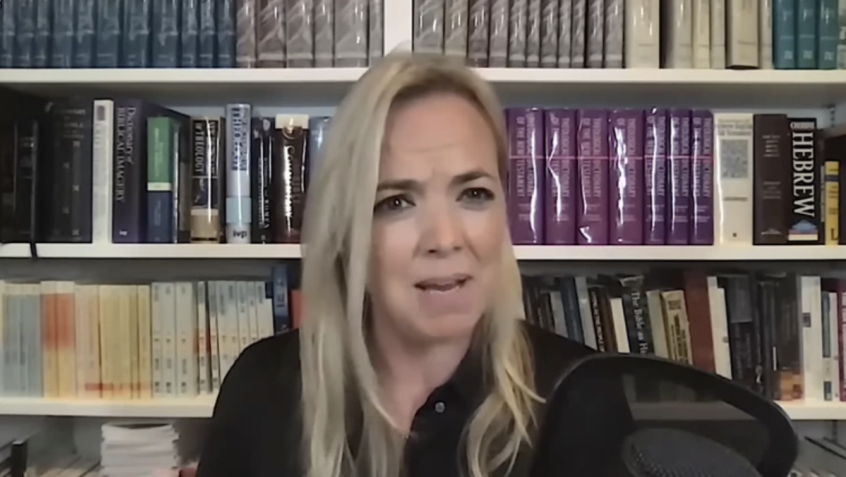
(CP) A former executive for Ravi Zacharias International Ministries recently shared in a live panel discussion that she regrets not "pushing harder" when sexual abuse allegations against the late apologist Ravi Zacharias first emerged.
Amy Orr-Ewing, a senior fellow at the Oxford Centre for Christian Apologetics who formerly served as RZIM senior vice president, took part in a Sept. 23 live discussion hosted by Premier Unbelievable.
She joined others in sharing their thoughts on how the churches and ministries can prevent abuse scandals and embark on healing.
Orr-Ewing shared her perspective on what went wrong at RZIM after allegations emerged that the RZIM founder and notable apologist, who died of cancer in 2020, had abused or harassed multiple women over several years.
She believes she did not advocate enough or question the ministry organization as much as she should have in response to 2017 allegations of sexual misconduct made by Zacharias' former follower Lori Anne Thompson and her husband.
"For me personally, I realized that I was incorrect, that I failed in many ways," Orr-Ewing admitted.
In February 2021, an independent investigation report released by the Atlanta, Georgia-based law firm Miller & Martin detailed credible allegations that Zacharias had engaged in "sexting, unwanted touching, spiritual abuse, and rape" during his lifetime with multiple women.
RZIM, which hired the firm to investigate the claims, issued an apology along with the firm's report, saying it was "shocked and grieved by Ravi's actions" and felt "a deep need for corporate repentance."
Following the independent investigation, a lawsuit was filed against RZIM by a group of donors who accused the apologetics organization of using donated funds to pay off victims.
Orr-Ewing worked as a public speaker and evangelist for RZIM based in Oxford, United Kingdom, in 2017 when Thompson came forward with abuse allegations against Zacharias. She said the "first indication that something was wrong" was when the team was told that a woman had come forward alleging an online sexual relationship.
"It was positioned as 'this is a person who is seeking to extort this very godly evangelist, who's in his 70s and who served the Lord all these years,'" she recalled.
Despite feeling now as though she could have done more, Orr-Ewing alleged that anyone who questioned ministry team members was shut down at that time.
She says she was told that the ministry's board was conducting an investigation into the allegation and that the matter had been thoroughly investigated by Zacharias' denomination, the Christian and Missionary Alliance.
"When the team heard about it, there was an [non-disclosure agreement] in place that was positioned to protect [the woman's] privacy, and it was deeply, deeply troubling. Lots of people on the team were really disturbed by that," Orr-Ewing said.
"Many of us questioned the rightness of a Christian organization having NDAs. It was actually between Zacharias personally, and not done by the organization. Lots of things were deployed. [I was told] 'this is cultural. You don't understand American culture.' All of that. So, that was disturbing."
Orr-Ewing said that although "there was a lot of disquiet" and "a lot of very, very difficult confrontations," she and the others decided that "we just have to accept this situation."
As more allegations about Zacharias' behavior became public following his death in 2020, Orr-Ewing said it became clear that "something was very devastatingly wrong."
Because of the COVID-19 pandemic, it was "extraordinarily difficult" for her and others "to try and push for [a] genuine independent investigation into not just Zacharias, but into the organization and what had gone so terribly wrong with us, with our structures, with our discernment."
Orr-Ewing said "clusters of things" were used against her to keep her from further questioning what was happening with Zacharias and how RZIM was handling the scandal.
"Your desire to be loyal, to be trustworthy, not to gossip, those themes [were] being weaponized against you so that you don't push and ask questions that you do sort of try to ask," she said.
"I guess the susceptibility of us as believers who want to work in community with other Christians, who want to think the best of others, who want to believe and trust that when you hear accountability is in place and here are these explanations, to think you'd be able to take that at face value."
Though Orr-Ewing wishes she "pushed harder," she also believes that the experience taught her to search for abuse patterns and be a voice for survivors.
"For me personally, I've realized that I was ignorant. I failed in many ways, but I've now seen patterns that are things that we can watch out for as I've supported women and others in other similar situations or abuse survivors in the last two and a half years," she said.
"I have hope that I can be involved in helping serve the Church in raising the alarm to what some of those patterns are so that other churches and organizations don't need to fail like we did."













